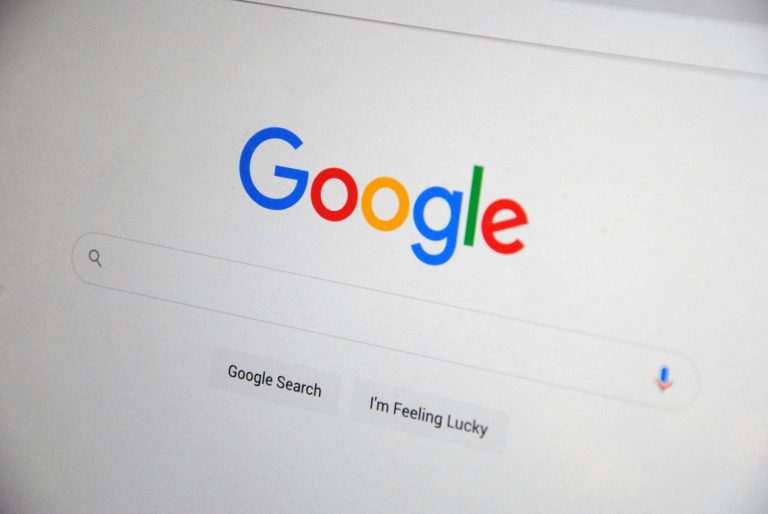
Is AI moderation enough to make reviews trustworthy?
At Aqueous Digital, we’ve long maintained the belief that the concept of reviewing companies is flawed, having a significant effect on the success of businesses
Artificial intelligence has filtered — perhaps almost imperceptibly to many of us — into all sectors of society. Once feared as a powerful creation that would overtake and outthink us at every turn, the kind of AI utilised in everyday applications is far less insidious, yet powerful all the same.
AI marketing may admittedly not be the most exciting application for artificial intelligence, but it is one of the strongest cases for how AI is now a commonplace, everyday tool that makes many tasks far easier and efficient than they were yesteryear.
AI marketing utilises the strengths and capabilities of AI to interpret data, monitor trends, and even generate content (albeit with help from human editors). Using AI as a part of a comprehensive marketing strategy relieves some of the legwork that previously fell on humans – who, as we know, are prone to error.
It should be noted that AI can’t currently replace people outright. It is a tool to be used alongside creative marketing efforts, as opposed to a one-size-fits-all solution for any and all marketing tasks. Indeed, AI may never reach the level of complexity needed to outperform humans when it comes to creative thinking and understanding the nuances of human emotion and thought.
AI-based marketing doesn’t mean the complete digitisation of your business or paying coders for an expensive, bespoke AI assistant. Many turnkey solutions exist for adding some AI-powered help to your marketing efforts, and they’re as simple to integrate as any other software suite.
AI marketing is perfectly legal in and of itself. There aren’t currently any laws forbidding the use of AI in marketing materials or the use of marketing data. However, there is legislation — such as GDPR — that touches upon the use of AI in marketing, as well as the data that automated systems use.
Generally speaking, your AI software should be fine when using marketing information obtained in line with the law. That is to say, only necessary data obtained using legal, transparent means with the consent of the user. If your AI uses data that hasn’t been obtained legally, then it could be argued that your AI marketing efforts are not legal by extension.
Regarding GDPR specifically, there’s more complexity to the idea of using AI and algorithms to make decisions.
GDPR provides that people can appeal decisions made solely by automated processes which affect them on a ‘legal or similarly significant’ level. In such cases, the individual has the right to request human intervention.
An example of a legal or similarly significant decision made on this basis is deciding whether somebody qualifies for a significant financial product like a mortgage or credit agreement, or deciding how to filter candidates in a recruitment process.
Furthermore, the regulations provide that people have the right to an explanation of how algorithms are used in making decisions relevant to users, such as how they are recommended products or content.
Whilst these scenarios may not have intrinsic links to marketing, they’re caveats to the uses of AI and automatic which digital marketers should be aware of. A marketing campaign isn’t likely to make such serious decisions concerning customers, but knowing the rights that people have in regard to their data — particularly when it’s being fed to an AI — is crucial.
AI can help marketers understand their audience with greater insight and richer data. It can also help with content generation, search engine optimisation, content strategy building, and much more. AI tools streamline marketing tasks whilst performing top-tier analyses and even taking some tasks off marketers’ hands entirely.
Areas of marketing where AI can help include:
The creators of some AI tools claim they can generate useable content; these claims should be taken with a pinch of salt. While there are most definitely AI platforms that can and do generate written content, they aren’t the magical fix for a marketing agency that needs quick, quality content.
Content is king, as the saying goes. Your content must be as high-quality as possible, but it must also be written for the human. AI-generated content can often be a little too focused on the SEO side of things as opposed to the people making the searches in the first place.
However, AI content generation can at least help get the ball rolling and give marketers a jumping-off point in their content creation efforts.
A key strength of AI is that it doesn’t sleep and it doesn’t need breaks. AI can constantly monitor for customer trends and interests, tirelessly collating them and sorting them so that marketing efforts can be bettered tailored for your audience(s).
Campaigns targeted more accurately and intelligently to the right people means higher conversion rates and a better return on your marketing as a whole. It also means that you’re propagating your image to the right people and in the right way; with relevance and intent, not spamming them with useless ads.
Using AI in the right way and with a healthy amount of restraint can improve both inbound and outbound marketing successes.
Some might argue that customer service isn’t an aspect of marketing, but its role is most certainly reciprocal. Customers may contact you before they ‘enter the funnel’, hoping to find out more about your products and services, or they might be looking for aftersales help.
Either way, a positive experience can often end up being one of the strongest forms of marketing you could hope for, particularly if they feel driven to leave a glowing review.
Where does AI come in? Marketing AI can be wonderfully useful when applied to live chat channels, recognising names and answering queries via phrase recognition and latching onto certain keywords. This isn’t just a matter of convenience: recent figures have shown that helpful live chat brings a wealth of benefits to businesses, from greater customer satisfaction to higher conversion and shopper spends.
AI can often have a rather circular relationship with data. AI marketing requires good data to perform many of its roles, and as they work over time — perhaps improving as they go, using machine learning algorithms — they can harvest even better data to inform your work.
Additionally, AI can help by cleaning up and preventing duplicate data which can lead to unfortunate mistakes like sending multiple emails to the same individuals or companies. Keeping clean, merged records is one of those small quality assurances that are guaranteed to make your marketing work smoother, even if only slightly.
AI can capture contact details from email correspondents, oversee data imports to ensure everything marries up as it should, and even monitor your competitors (fairly and legally, of course) to help you keep track of the competition.
A big challenge of using any tool is ensuring that said tool is being used in the most efficient way. AI marketing tools don’t come free, and incorporating them into your marketing needs to come with a return that justifies them.
To that end, AI tools should be understood and utilised for greatest effect. Part of this will hinge on the organisation of your marketing practices themselves. It’s no good using a tool to efficiently import data and customer lists if these customers aren’t justified by market research and consequently aren’t interested in your offering.
Another challenge to AI marketing success is ensuring that your use of AI is intertwined correctly with practice. For example, AI’s aforementioned accuracy and fidelity (or sometimes lack thereof) makes it more of a tool to be used alongside a writer or editor. Its copy may not even fool Google, who will punish AI-produced content if it comes across as too SEO-focused in its language and purpose. Results, after all, should be serving their human readers, and not SEO itself.
Google is constantly refining its algorithms and tweaking the way it delivers SERPs to users. As such, it is harder and harder for content to get by solely being aimed at SEO. If AI-generated content — and AI content marketing, by extension — is to be successful into the future, it must speak to the human effectively enough to not only impart meaning and value, but carry a sense of trustworthiness and authority.
Getting AI to a point where this is reliable and can be repeatably done is a challenge of advancement that likely affects many dreamt-up applications of AI, but marketing in particular has much to gain from its solutions given that the global market for digital marketing is set to surpass $750 billion by 2026.
Use of AI in marketing, while currently legal, might also face future regulations as its capabilities grow and fears surrounding the safety of personal data deepen.
Despite the challenges discussed above, our current level of sophistication in AI is already changing the face of digital marketing.
Customer relationships with companies are now more secure, thanks in part to AI-powered chatbots that are able to quickly resolve issues, and the ability to identify and rescue ‘at risk’ customer situations. Targeted messaging also brings customers closer to a brand with a more personalised connection developed in real time, encouraging interaction and return buying.
Powerful machine learning also allows decisions to be made sooner than if humans were in control with a ‘wait and see’ mindset. An AI is able to apply data and use it to draw conclusions more accurately than a person might, and it can do so whilst a campaign is still running, therefore presenting the chance to turn a poorly performing campaign around.
AI can also be used when bidding for programmatic advertising space, allowing marketing teams to target the most relevant spaces for them based on customer data.
It may be hard to establish just who the leader is when it comes to use of AI. Some huge companies utilise AI in many of their efforts, not just those that fall under marketing.
However, the winner is arguably Chinese e-commerce platform Alibaba, one of the largest e-commerce businesses in the world and one of the top AI leaders globally.
Alibaba uses AI on an everyday basis. Not only does it use AI programs to try and predict customer buying habits, but AI is also used to write its product descriptions. Like many platforms, Alibaba uses AI-powered chatbots to answer customer queries, and they have seven research labs set up towards the purpose of research and advancing AI.
And, like Amazon, Alibaba uses robotics and automated environments to process incredibly high volumes of shipments.
Other big players in AI usage and advancement include Alphabet (Google’s parent company) who are currently operating self-driving vehicles in California and acquired AI research company DeepMind in 2014. Microsoft is also working on incorporating AI elements into many of their products, with their personal assistant Cortana now commonplace on all Windows PCs.
AI marketing is most certainly poised to become a bigger and even more powerful force in future. HubSpot found that that 33% of marketers not using automation plan to implement it in 2022, and the continued growth of the global AI market as a whole means that there’s no slowing in its advancements.
Better AI will ultimately give marketers a clearer, deeper, richer image of their customers and their buying behaviour. With greater insight, new marketing strategies can be formed to grab attention and surprise customers in brand-new ways.
Natural language processing may even reach the point where AI content is indistinguishable from human writing.
For an intelligent, blended approach to marketing that doesn’t simply lean on AI to make all the decisions, contact us here at Aqueous Digital. Whether you’re in Liverpool, London, or Manchester, we’ve got all the tools and experience to deliver award-winning results for your business’s SEO and online presence.
Get in touch with us today.
Content is King. What is content marketing?
Creating great content: How to write for SEO
How digital marketing has changed over the years
How video content can elevate your website
Top 20 Facts about Manchester You Never Knew
Aqueous Digital’s Ultimate Guide to the cost of SEO in the UK
Aqueous Digital’s Guide to the Top 501 SEO and Digital Marketing Terms
How video content can elevate your business
How long does SEO take to work?
What are the most important SEO ranking factors?

At Aqueous Digital, we’ve long maintained the belief that the concept of reviewing companies is flawed, having a significant effect on the success of businesses

Searching for different ways to connect with your target audience? With curated content, you can engage key demographics that are vital for the success of

Taking no less than two weeks to complete, Google’s first core update of the year has now finished rolling out, as reported by Search Engine

It’s no secret that ever since the early 2000’s, Google has been the go-to search engine for online users across the world, but with AI

Struggling to determine how much money your construction business should be dedicating to your marketing efforts? As award-winning digital marketing experts, the Aqueous Digital team

Concerned that your tech company isn’t grow as fast as you’d like? In 2025, there are several industry-specific challenges that could be hindering the growth